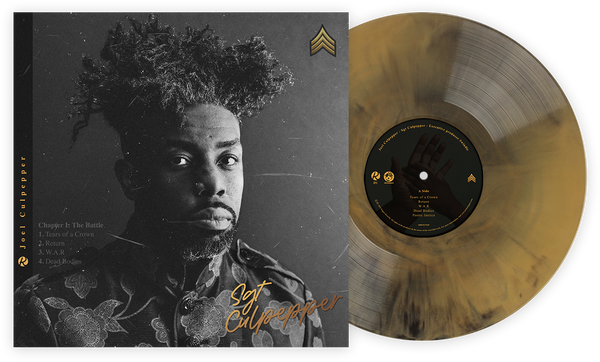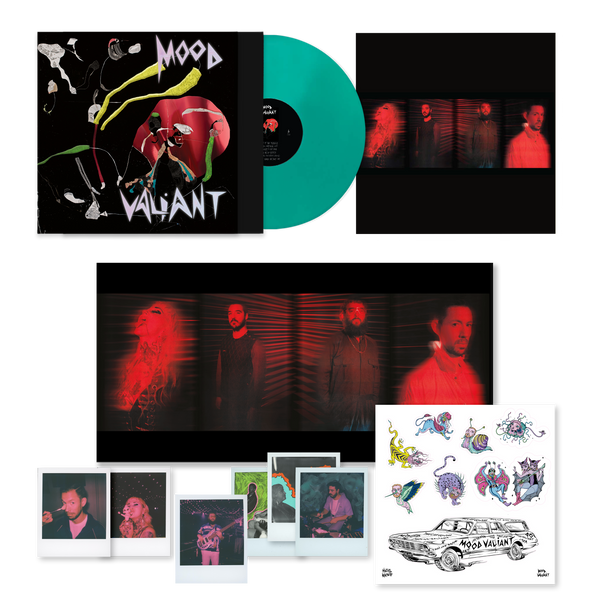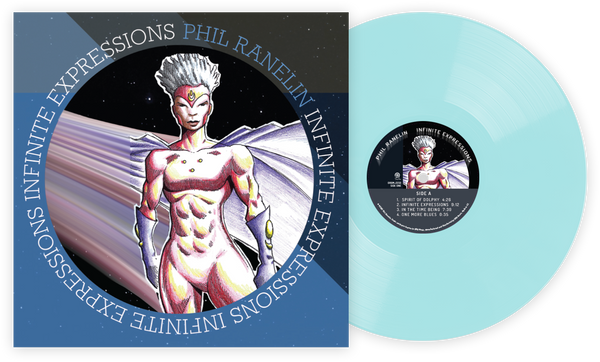Ambrose Akinmusire Plays The Blues
We Review The Trumpeter’s Stunning New Album
Every week, we tell you about an album we think you need to spend time with. This week’s album is on the tender spot of every calloused moment, Ambrose Akinmusire’s sixth album, and fifth for legendary jazz imprint Blue Note.
Over the course of five, now six, dense, complicated, stunning, incredible albums, Ambrose Akinmusire has repeatedly challenged and adapted jazz norms, and wielded his jazz as a mirror to society, questioning the mammoth issues of our time, from police brutality, to White Supremacy, to structural racism, to the day-to-day challenges of existence in the African American community. His 2011 Blue Note debut. The Heart Emerges Glistening, had songs in honor of Oscar Grant--like Akinmusire, a son of Oakland, who was murdered by police in 2009--and his 2014 album, The Imagined Savior Is Far Easier to Paint took on hero worship and had a song where he read the names of people killed by police. 2018’s Origami Harvest blew up the work he had done previously, in favor of mostly improved compositions that featured freestyle rap verses over the top.
Akinmusire’s sixth LP on the tender spot of every calloused moment comes at an especially poignant time, given the righteous unrest around the U.S. in dozens of cities around the U.S., and the album’s mood matches this moment: it’s weary and it’s had enough. Akinmusire, after discussions with another iconoclast genius who turned his jazz political, Archie Shepp, conceived of on the tender spot as his “blues” album, one where his playing is more solemn, stripped back, and raw. Not that Akinmusire has lost any of his power though; this is an album that will stop you dead in your tracks, and lay you low with each new movement.
Akinmusire is backed by his usual quartet of pianist Sam Harris, bassist Harish Raghavan, and drummer Justin Brown, who gives these songs an understated mood. The album is built around two homages to important figures in Akinmusire’s jazz education. The first is “Mr. Roscoe (consider the simultaneous),” a track paying honor to Roscoe Mitchell, founder of the legendary avant garde jazz group Art Ensemble of Chicago, and recent Akinmusire live collaborator. Akinmusire saw the Art Ensemble as one of his first jazz concerts after winning a contest as a middle schooler, and it opened an entire new way to think about music for him. The song here makes space for his lyrical trumpet lines and manic tone shifts and shifting sands that mark the Art Ensemble catalog. The other homage is “Roy,” a song in honor of the recently deceased Roy Hargove, another trumpeter who blended rap and jazz, and who had Akinmusire in his group at the beginning of the latter’s career. Here the mood is more funereal, but buoyed by Akinmusire’s open-eyed playing.
The album culminates with “Hooded procession (read the names aloud),” a track with Akinmusire playing a Rhodes, unaccompanied, an affecting, devastating denouement that captures in its three minutes all the tumult, terror and sadness at the center of the album. on the tender spot of every calloused moment might be Akinmusire’s finest achievement, the sixth album of Akinmusire quietly building a masterful body of work that shows how jazz can function as music that says something about life in 21st Century America.
Andrew Winistorfer is Senior Director of Music and Editorial at Vinyl Me, Please, and a writer and editor of their books, 100 Albums You Need in Your Collection and The Best Record Stores in the United States. He’s written Listening Notes for more than 30 VMP releases, co-produced multiple VMP Anthologies, and executive produced the VMP Anthologies The Story of Vanguard, The Story of Willie Nelson, Miles Davis: The Electric Years and The Story of Waylon Jennings. He lives in Saint Paul, Minnesota.












